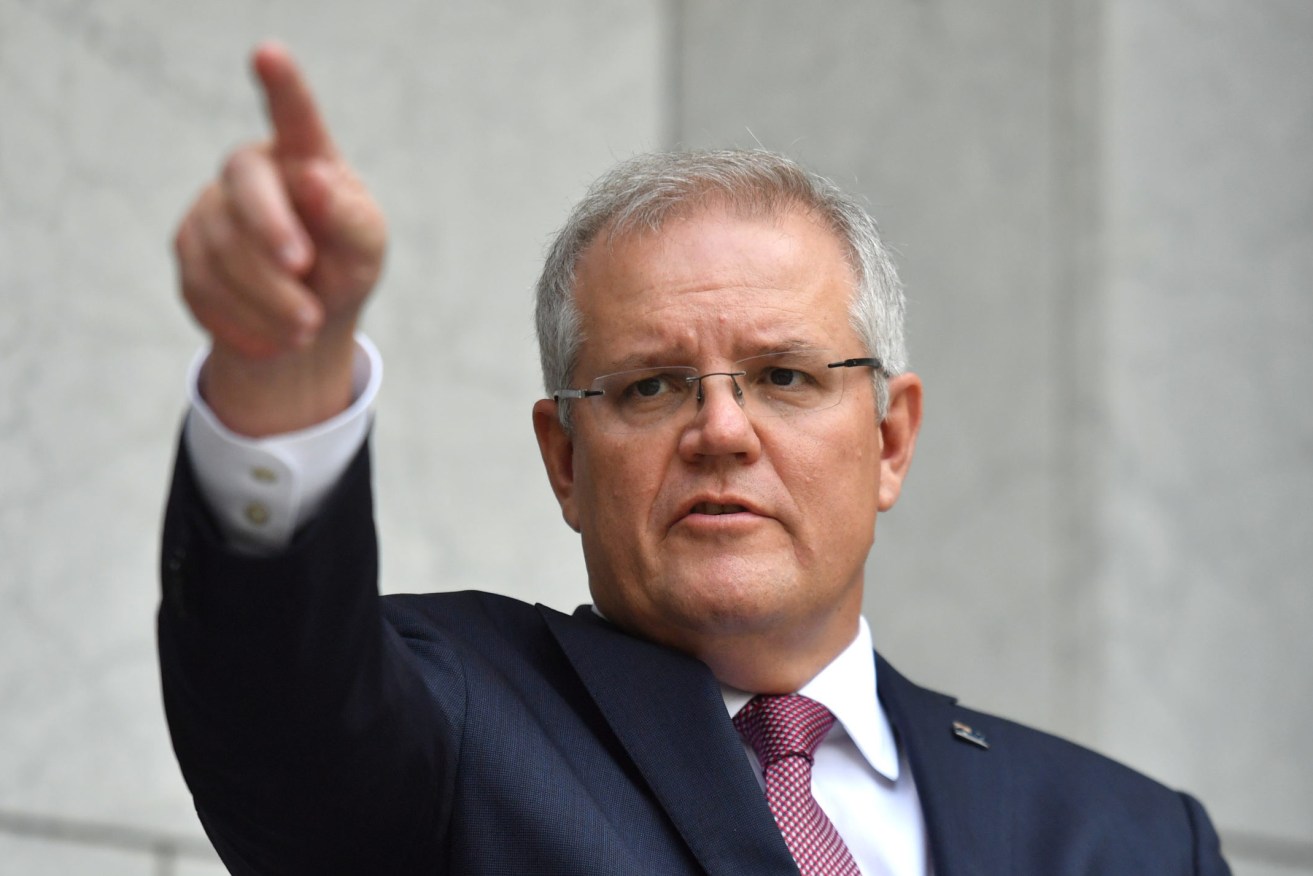Michelle Grattan: Why the (bad) times have suited Scott Morrison
They say a year is a long time in politics, and Scott Morrison is living proof. Michelle Grattan looks back on an extraordinary turnaround for Australia’s PM

Prime Minister Scott Morrison has urged Australians to remain positive through the current lockdowns (Photo: AAP Image/Mick Tsikas)
When he ended 2019 amid literal and political smoke, it would have seemed inconceivable Scott Morrison could finish 2020 on a high. Or that he’d have reached there on the back of Australia’s worst downturn since the Depression.
Morrison learnt from his mistakes of last summer, about how he needed to adapt his own style, and where power really lies in the federation. That knowledge served him well in the COVID crisis.
He was ever-present, with frequent news conferences, and the creation of the “National Cabinet” — a success despite arguments and fragmentation — maximised the Federal Government’s clout in a situation where the preponderance of power rested with the states.
The imperatives of 2021 will be different — assuming we remain largely COVID-free. In juggling the dual health-economic challenges, the emphasis will be on the latter. Reducing unemployment will be top priority, requiring some delicate balancing as the fiscal life support is removed.
And Australia will be operating in a world where COVID is still rampant, and in a situation further complicated by deep tensions in our relationship with China.
The public may — or may not — be in more of a mood for political disputation in 2021, which they certainly haven’t been this year. If they are not, that will work against Anthony Albanese.
The (bad) times have suited Morrison, including making it easier to keep his own troops in line. Next year will bring the climate debate seriously to the fore — never easy to manage internally.
With a very healthy lead as preferred prime minister, Morrison feels confident he has Albanese’s measure.
But one uncertainty is whether Labor might change leaders. How would Morrison have to adapt his style if he faced Jim Chalmers or, more intriguingly, Tanya Plibersek?
As he now contemplates an unpredictable 2021, what issues will the PM have front of mind? And what do experts believe should be done on them?
Thursday’s budget update told a better story than expected as recently as the October budget. The virus’s containment and massive fiscal support have made Australia one of the few positive standouts in a devastated world.
Growth is forecast at 4.5 per cent in calendar 2021, after a fall of 2.5 per cent in 2020. Unemployment, 6.8 per cent in November, is set to peak at 7.5 per cent in the 2021 March quarter. It won’t be “comfortably” under 6 per cent (5.25 per cent) until 2024.
Treasurer Josh Frydenberg emphasises that despite the encouraging prospects, the road ahead will be tough and long, as we move to a post-COVID economy, and there are risks to the recovery.
“These include the timing, distribution, and effectiveness of the vaccine in stopping the spread of the virus globally; trade tensions that limit Australia’s access to international export markets; and domestic economic uncertainty that could lead to higher household savings and lower consumption,” he said.
The bilateral relationship was already bad, but the 2020 deterioration has been spectacular and alarming. Riled by various Australian policies, China was further angered by the early call for a COVID inquiry.
China is now targeting Australian exports ranging from barley and wine to coal; this week Australia referred the barley dispute to the World Trade Organisation. Earlier, the parliamentary year ended with legislation on foreign investment and agreements with foreign governments that had China in the sights.
Handling the relationship is Australia’s 2021 foreign policy conundrum. There’s no obvious way forward, with China determined to make an example of Australia, as payback and a warning to other countries.
Morrison repeatedly declares the Government wants ministerial and leadership dialogue to resume. The Chinese show no interest. Things have been made harder by COVID’s “virtual” summit diplomacy. If 2021 sees some face-to-face summits there’ll be chances for in-person encounters.
Morrison has been shifting on climate, and where he lands will be important for domestic politics and Australia’s international reputation.
Eyes are on whether he’ll commit Australia to the target of zero net emissions by 2050, endorsed by all states and, in a recent Essential poll, 81 per cent of Australians.
Joe Biden’s election, Britain’s strong stance, next year’s Glasgow climate conference, and the possibility of trade barriers — all will put pressure on Australia.
But Morrison has to contend with Nationals and some Liberals for whom the 2050 target is anathema.
Hardliners see the Government’s reform package as a Clayton’s effort; pragmatists say it’s sensibly moderate.
It will be highly contested over the summer, but the Government is signalling it will compromise.
The Government this week announced $1 billion extra for aged care, but the big decisions await the royal commission’s February report.
We know — from COVID which claimed nearly 700 lives among aged care residents and from the commission’s interim findings — the system is unfit for purpose, as it faces the baby boomer bubble.
The fallout out from the inquiry into alleged Australian atrocities in Afghanistan has been swift and divisive, with some serving and former soldiers furious at Defence Force Chief Angus Campbell’s plan to remove a unit’s citation – which prompted the Government to force him to defer a decision.
Veterans also attacked Defence Minister Linda Reynolds’ frank reference to “incidents of alleged cold-blooded murder”.
The ways ahead on all these issues will be complex. In political terms, the question is whether Morrison can maintain in the new circumstances of 2021 the ascendancy he established, somewhat unexpectedly, in 2020.
Michelle Grattan is a professorial fellow at the University of Canberra and chief political correspondent at The Conversation, where this article first appeared.












